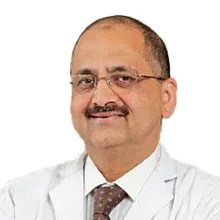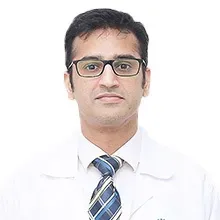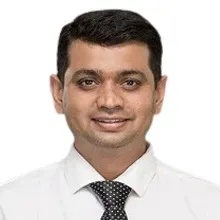Overview of Oral Cancer Treatment India
Malignant neoplasia of the oral cavity, or squamous cell carcinoma, which has a strong tendency to spread to other organs. It is estimated that out of the 5% of tumors that occur in the head and neck, half occur in the oral cavity. The number of cases was approximately 99,495 by the year 2020 in India. It has a very high prevalence in India. Most patients were already in an advanced stage of disease at the time of diagnosis, despite all the diagnostic tools and advanced technology available. The signs and symptoms associated with oral cancer are usually non-specific and often mistakenly present as other diseases. In India, alcohol and cigarette smoking, which include gutka, bhidi, khaini, and hookah, are the major risk factors associated with these habits, and these habits are more prevalent in the male population. The early sign can be the formation of leukoplakia, a white plaque in the buccal mucosa, gingiva, and vermilion on the lips. But it is not considered a definitive diagnosis. However, clinical correlations with risk factors and biopsies are required to confirm the diagnosis. Usually, the disease is in a premalignant stage in half of the cases, and 50% of cases are in an advanced stage. Despite all the advancements in radiation therapy, chemotherapy, and hormonal therapy, the prognosis remains poor.
Types of Oral Cancer Treatment India
Treatment suggestions are always individual and based on the stage of disease and the condition of the patients. It may be one treatment in early stages or it can be a combination of treatments in the advanced stages of disease. Some of the treatments are:
- Chemotherapy
- Radiation therapy
- Immunotherapy
- Targeted drug therapy
- Surgery
Chemotherapy
It involves the cytotoxic drugs that kill the cancerous cells. This usually involves the systemic effect which means the drug enters the blood and causes its effect. It may be used in combination with radiation therapy and referred to as chemoradiation. Some of the drugs used in chemotherapy are:
- Methotrexate
- Ifosfamide
- Cetuximab
- 5-fluorouracil
- Bleomycin
- Carboplatin
Radiation Therapy
The use of high radiations to kill the cancerous cells comes under this treatment. It can be external radiation outside the body or the source implant internally.
External beam radiation therapy: The beam of rays passes through the skin from the outside machine and targets the tumor cells. These maybe:
3D-CRT: the rays kill the cancer cells from different directions and hence called 3D-conformal radiation therapy.
IMRT: intensity modulated radiation therapy works as the rays pass from the many different angels and kill the tumor.
Internal beam radiation therapy (Brachytherapy): It involves two different ways:
Interstitial Brachytherapy: the radioactive needles are placed in the tumor which passes rays directly to cancer cells.
Intraoral cone: the cone placed inside the mouth and passes rays to the cancer cells.
Immunotherapy
The use of the biological system of the person's immune system to fight against the tumor cells as a defense mechanism. These are:
- Pembrolizumab
- Nivolumab
- Avelumab
- ipilimumab
Targeted Drug Therapy
These drugs block the nutrition of the cancer cells and cause their death. It may be used with other treatments combined. These are:
- Cetuximab
- Entrectinib
- Dabrafenib mesylate
- Dostarlimab-gxly
Surgery
There are several surgical procedures for the removal of tumors. Some of them are:
Mohs surgery: A surgical procedure called Mohs surgery, also known as Mohs micrographic surgery, may be used to treat tiny malignancies on the lip. Layer by layer, the tumor and surrounding tissue are removed until the tissue is free of all cancerous cells.
Glossectomy: the surgical procedure of the removal of tongue. it may be partial (small part of the tongue removed) subtotal (large part of tongue) or total (whole tongue).
Mandibulectomy: Mandibulectomy refers to surgery to partially or completely remove the lower jawbone (mandible). It is utilized to treat tumors that are either close to the lower jawbone or have developed into the lower jawbone.
Maxillectomy: it is a surgical procedure used to remove any tumors from the palate and to partially or completely remove the upper jawbone (maxilla). To remove the tumor, either a partial or full maxillectomy is usually performed.
Diagnosis of Oral Cancer Treatment India
Physical Examination
The physical examination, which typically entails two steps—a thorough visual inspection and palpation—is the first and most important step in diagnosing oral cancer.
Biopsy
A tissue sample is surgically collected and sent to the pathology laboratory for a thorough microscopic analysis. The only approach to detect oral cavity or oropharyngeal cancer is through biopsy.
MRI (magnetic resonance imaging)
The structures in the mouth cavity and surrounding region are detailed examined by MRI. Assessing the tumor's local and regional distribution, invasion depth, and extent becomes easier due to MRI.
Biomarkers
The biological components that are expressed in the serum or saliva and ultimately result in mouth cancer may serve as biomarkers for the early identification of oral cancer. In general, biomarkers are elements of cells found in tissues or tumor cells that are elevated during the early stages of a disease.
Vital Staining Techniques
Visual tissue staining is a new method for cancer diagnosis. To detect mucosal abnormalities in the oral cavity, toluidine blue staining, commonly known as tolonium chloride, is particularly used.
Oral Cancer Treatment Cost in India
The average cost of oral cancer treatment in India is over 2419 USD and goes up to 6048 USD. But it may be different in different stages of the disease. Different ranges during each stage are following:
Different stages of cancer and their costs in India:
| Treatment Costs in India |
Min in USD |
Max in USD |
| Stage 1 |
105673 USD |
1553 USD |
| Stage 2 |
1578 USD |
1898 USD |
| Stage 3 |
2160 USD |
2545 USD |
| Stage 4A |
2559 USD |
2770 USD |
| Stage 4b |
2751 USD |
2902 USD |
Different treatment procedures and their costs in India:
| Treatment Costs in India |
Min in USD |
Max in USD |
| Chemotherapy |
84.5 USD |
181.5 USD |
| Immunotherapy |
1209 USD |
1814.4 USD |
| Targeted drug therapy |
36.29 USD |
3628 USD |
| Surgery |
2842 USD |
6048 USD |
Symptoms and Risk factors
- non-healing mouth sores
- chronic mouth pain
- a lump in mouth
- a white or red spot on the tonsil, tongue, gums, or mouth line
- Having a continuous aching throat or feeling as though something is in your throat
- difficulty chewing or swallowing
- Having trouble moving the mouth or jaw
- Numbness in the tongue or another oral region
- Jaw enlargement that makes dentures uncomfortable or poorly fit
- tooth sensitivity
- tooth loss
- pain in the jaw or teeth
- voice changes
- A depression in the neck
- Loss of weight
- stinking breath
Risk Factors for Oral Cancer
Tobacco Use
Since tobacco use causes millions of cancer deaths each year, it continues to be the biggest risk factor for developing cancer. Epidemiological studies have strongly shown a link between smoking and mouth cancer.
Betel Quid
The most popular habit in Southeast Asia, particularly on the Indian subcontinent, is chewing betel quid with various substances. These mixes are frequently consumed in different parts of India as khaini, mishri, zarda, gudakhu, and mawa. These products have been scientifically associated in studies for the development of oral cancer.
Alcohol Consumption
Oral cancer has been linked to alcohol consumption. Alcohol is the major cause of cancer in humans, particularly cancer of the esophagus, pharynx, larynx, and oral cavity.
Mouthwash
Oral cancer has also been linked to the mouthwash. Alcohol is typically found in mouthwashes as a preservative. According to research, a mouthwash's alcohol concentration, frequency of usage, and duration of use all increase the risk of oral cancer.
Viral Infections
The formation of malignant tumors, particularly the oral cancer, has been closely linked to viruses. The most frequent viruses linked to mouth cancer development are HPV (human papillomavirus).
Fungal Infections
The etiology of oral premalignant lesions has been linked to fungi infections, particularly Candida albicans.
Occupational Factors
Lip cancer is associated with certain occupational dangers, including excessive exposure to ultraviolet (UV) rays from the sun. Salivary gland cancers are caused by a number of professions, such as the production of rubber goods, plumbing, and constructing in the auto industry.
Radiation Exposure
There is strong association between radiation exposure and occurrence of oral gland tumors in later stages of life.
How it's Works
Guiding your Journey from Discovery to Treatment Planning and Beyond.
Discovery
Get a consultation to discover about your treatment
Pre-Treatment
Admission to the best hospital and all pre-treatment facilities
Post Treatment
Get post-treatment follow-up care with medicine fulfillment
Treatment Planning
Hassle-free treatment planning with package & cost estimations
in-treatment
world-class quality procedures and equipment for treatment

























